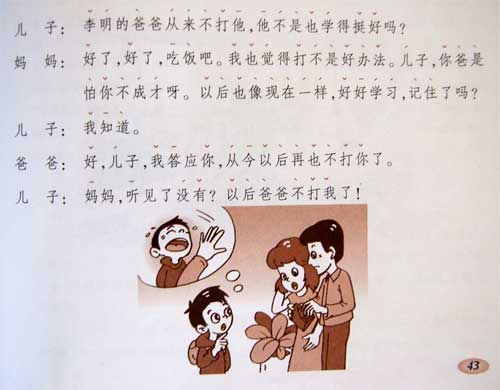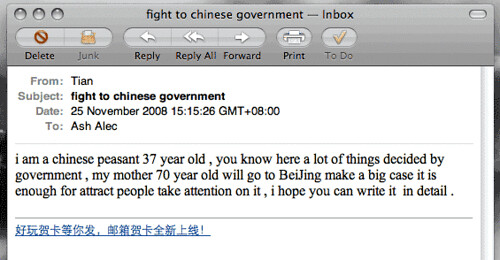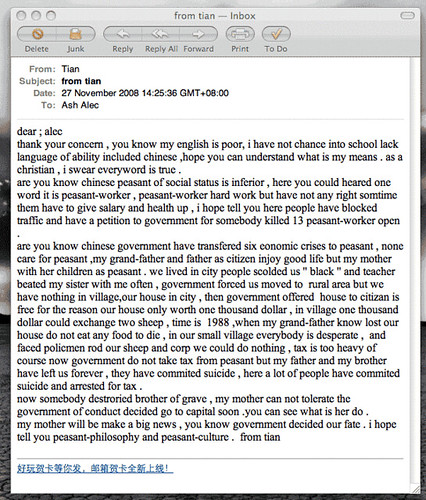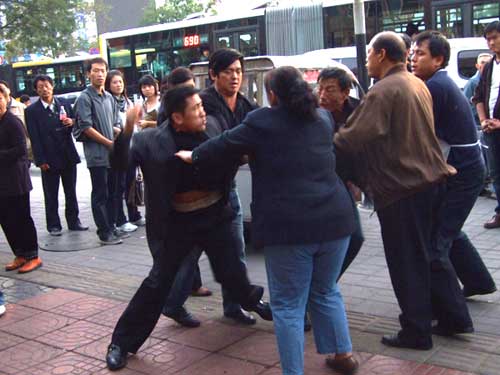For those new to this blog, I study Chinese at Beida – Peking University if that’s too esoteric for you. Since the beginning of term, my oral class has been working through the same ‘Hanyu Kouyu’ textbook (details below). We studied lesson 1. We studied lesson 2. Then 3. And 4. It seemed logical to assume 5 was next.
So it came as a surprise when our teacher told us we will be skipping lesson 5. The reason she gave was it was too short (not true, it is one of the longer lessons) and the new vocabulary in it wasn’t so useful (call me crazy if I think knowing the Chinese for ‘news’, ‘to improve’ and ‘knowledge’ is useful).
To be frank, her excuse and the abruptness with which she delivered it didn’t convince me. It then transpired the other classes which use this textbook also skipped the lesson. This likely wasn’t my teacher’s decision but a decision either made jointly by the teachers or – my pick – one made for them.
A quick read of the bothersome lesson later: its dialogue (each lesson uses one or more dialogues to exemplify new words and grammar) tells the story of a boy who comes back home with great test scores. His father is so pleased he offers 300 RMB as a reward. But the boy doesn’t want the cash. Instead, he wants his baba to ‘promise me one thing’: if he continues to do well, not to beat him any more. The Dad (grudgingly) agrees, after arguing that it is only because he beat him that the kid is disciplined enough to do so well in school. The touching ending? ‘Mom, did you hear that? Dad is not going to beat me anymore.’
It seems likely to me that my teacher was instructed to skip the lesson because this story reflects badly on China. Who wants foreign students studying Chinese culture and language to read that beating kids is common practice? True, it’s hardly a dialogue between a Sanlu employee and a quality-controller talking about how they’re sure there’s no industrial glue in this batch of milk. But still…
I will find an appropriate moment to ask my teacher about this, and see if I can weed out who (if anyone) asked her to skip a dozen pages, or if it was simply her and her colleagues’ decision. Check back.
Below: an extract from the dialogue in translation, and its illustration.
*from p.42-43 of ‘Hanyu Kouyu’ second edition (revised), by Dui Guifu Liu Lixin and Li Haiyan, published by Peking University Press in 2004 (reprinted 2008)*
(At home)
Mother: Our son is now ranked first in his class. I think he has definitely become an advanced student.
Father: Good boy! Tell me, what marks did you get?
Boy: A 98 in language, 100 in maths and 96 in foreign language.
Father: Altogether 294. OK, we’ll give you 300 kuai, this is a reward from your mother and me.
Boy: Dad, I don’t want money, I was just thinking…
Father: What do you want?
Boy: It’s not anything I want. I’d like you to promise me something.
Father: What is it? Children can make requests now? OK, tell me.
Boy: If I do well in the future, I don’t want you to beat me again, OK?
Father: Uh… you don’t understand, if I hadn’t been strict with you, you wouldn’t be who you are today. And then how could you get such good scores?
Boy: But Li Ming’s dad never beats him, and doesn’t he study hard?
Mother: All right, all right, time to eat. I also think beating isn’t the best way. Son, dad is just afraid that you won’t grow up right. Will you remember to study well in the future, just like today?
Boy: Yes, I will.
Father: OK son, I promise from now on I won’t beat you.
Boy: Mom, did you hear that? Dad is not going to beat me anymore!






